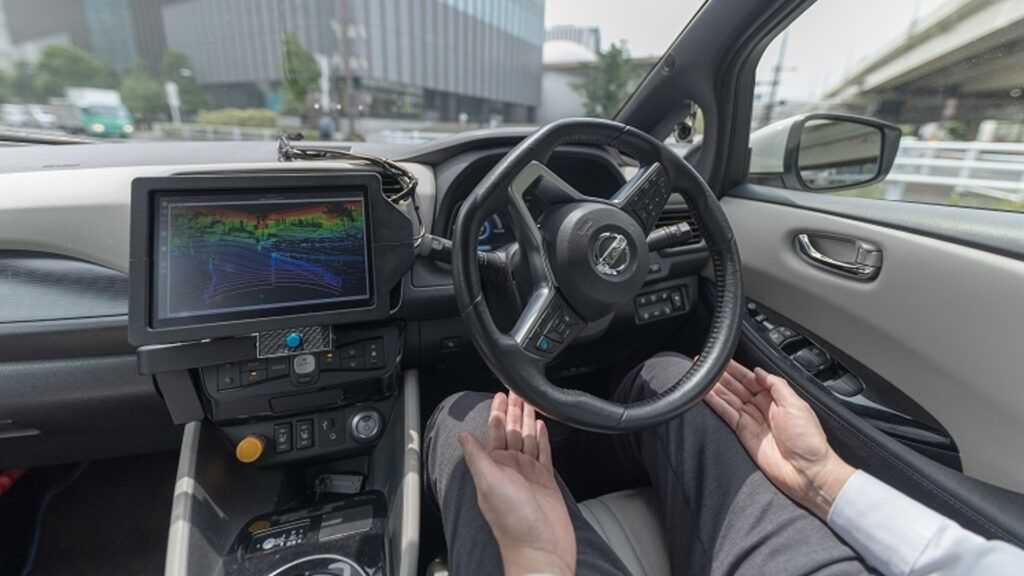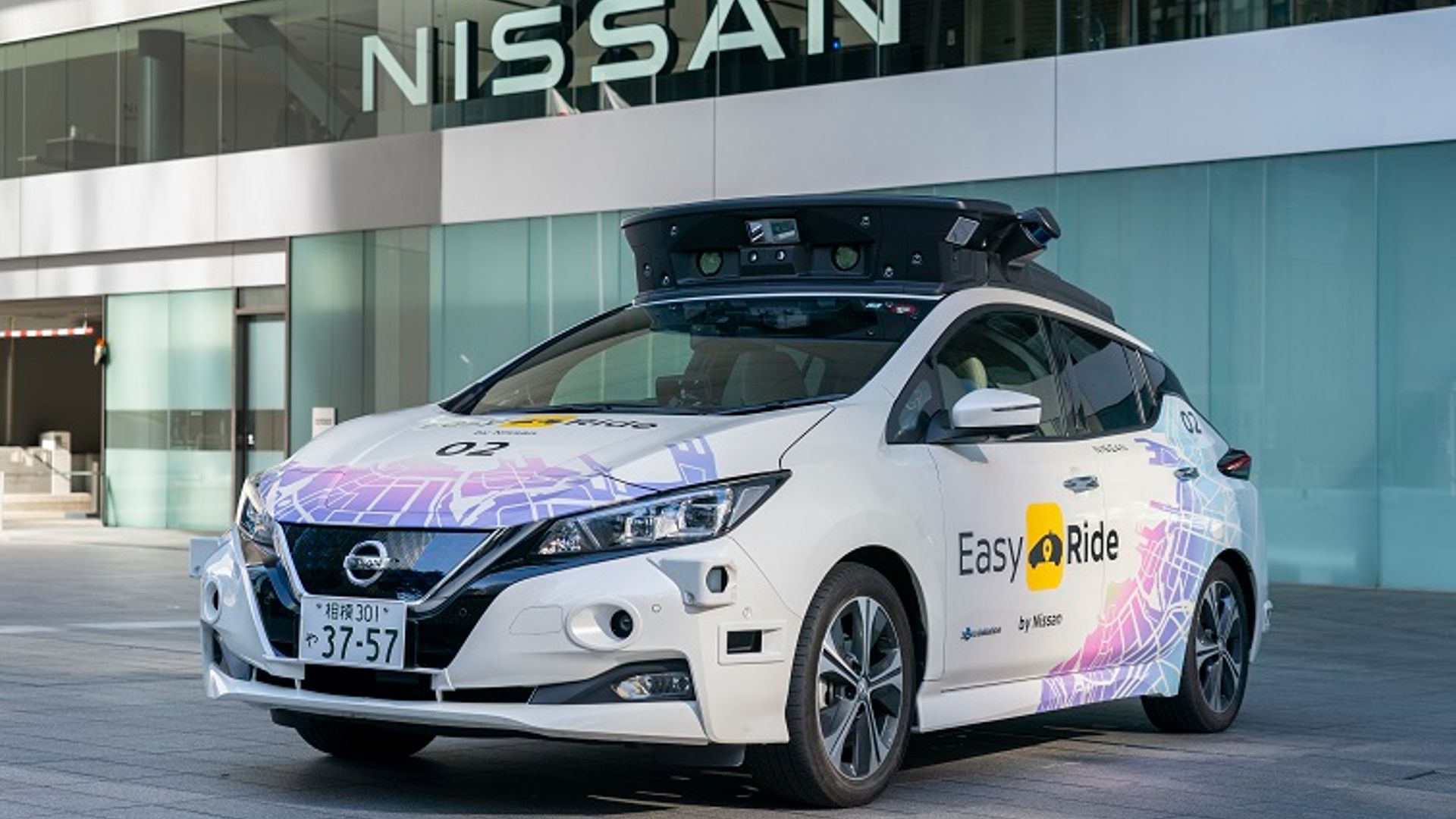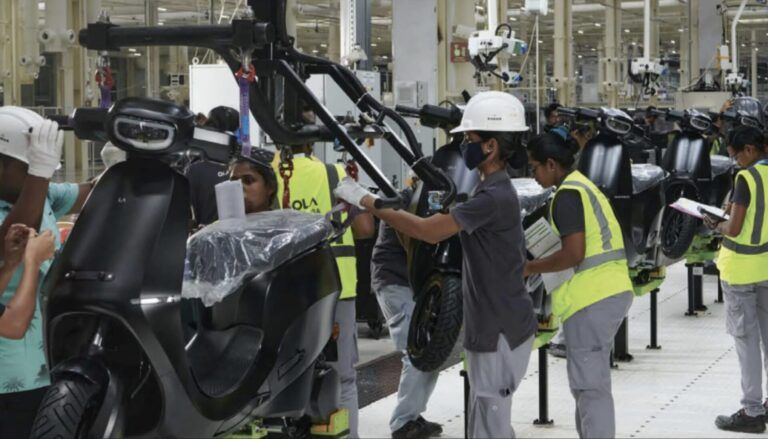Nissan has started conducting demonstrations of a prototype vehicle featuring its own autonomous driving technologies. It shows advancements toward its objective of launching autonomous mobility services by fiscal year 2027.
The company integrated 14 cameras, 10 radars, and 6 LIDAR sensors on the LEAF prototype vehicle. It highlights Nissan’s growth in autonomous driving, particularly in navigating complex urban settings. Unlike previous prototypes demonstrated by the company, the latest test vehicle includes a range of roof-mounted sensors, which significantly broadens the detection area and enhances the accuracy of detecting its surroundings.
As a result, Nissan improved recognition performance, behavioral prediction, judgment functions, and control functions. It resulted in smooth operation across various complex scenarios. In the bustling streets of Yokohama, near Nissan’s global headquarters in Japan, the LEAF prototype proves its capability to predict pedestrian behavior, execute lane changes during merging, and determine safe entry into intersections.
Since fiscal year 2017, Nissan has been analysing business models for upcoming mobility services. The Japanese automaker is carrying out the ongoing demo at the SAE Level 2 equivalent with a safety driver onboard. However, the company aims to enhance functionality and start providing autonomous-drive mobility services within Japan from fiscal year 2027. Moreover, it will collaborate with third parties like local authorities and transport operators.

Nissan intends to initiate trials in the Minato Mirai area during the fourth quarter of this fiscal year. Also, it plans to advance to service demonstration tests by fiscal year 2025. Throughout the trials, the level of autonomous driving functionality will be improved while evaluating customer acceptance, with the goal of offering driverless services.
The company has collaborated with the Japanese Ministry of Economy, Trade and Industry, Ministry of Land, Infrastructure, Transport and Tourism, and other central ministries on this initiative. These ministries will lead the way in making new autonomous mobility services happen through the Level 4 Mobility Acceleration Committee they manage.
Nissan aims to enhance mobility by tackling transportation service issues encountered by local communities. Within Japan, local communities confront various mobility challenges, notably, driver shortages stemming from an aging population. Nissan wants to address this issue by offering a range of new services that facilitate unrestricted movement.








